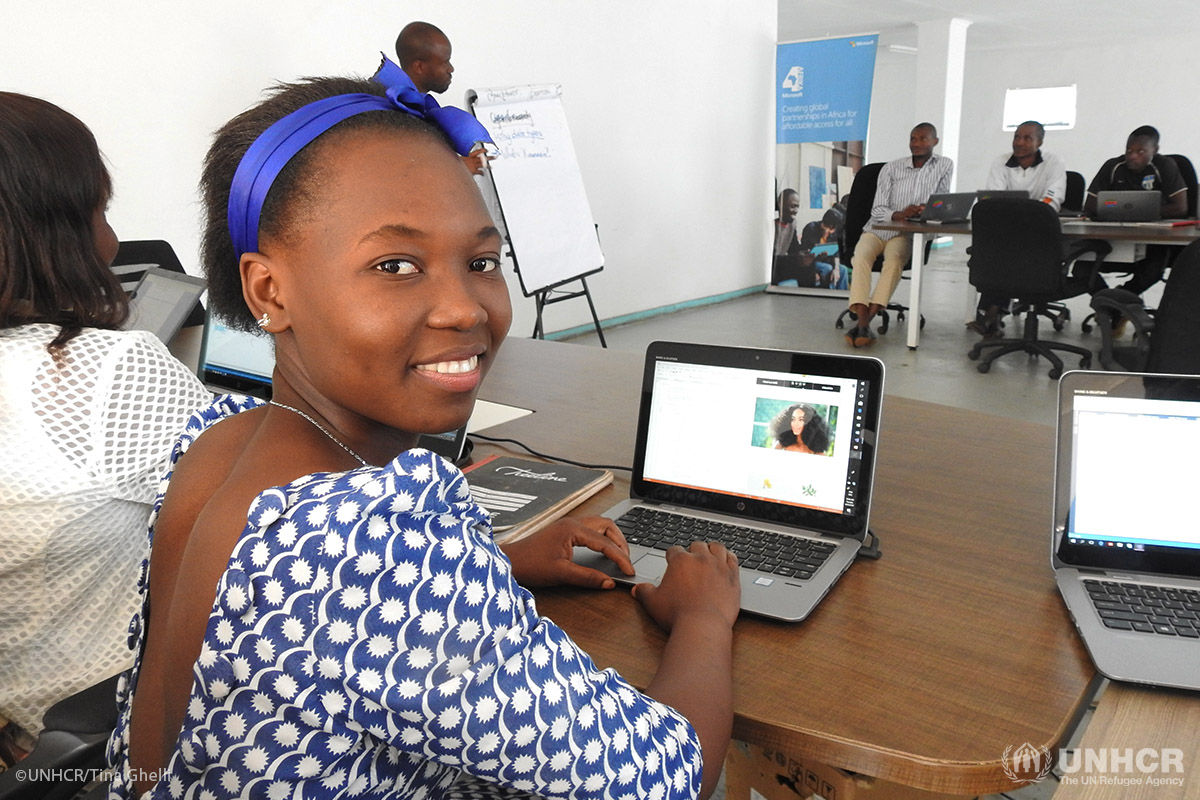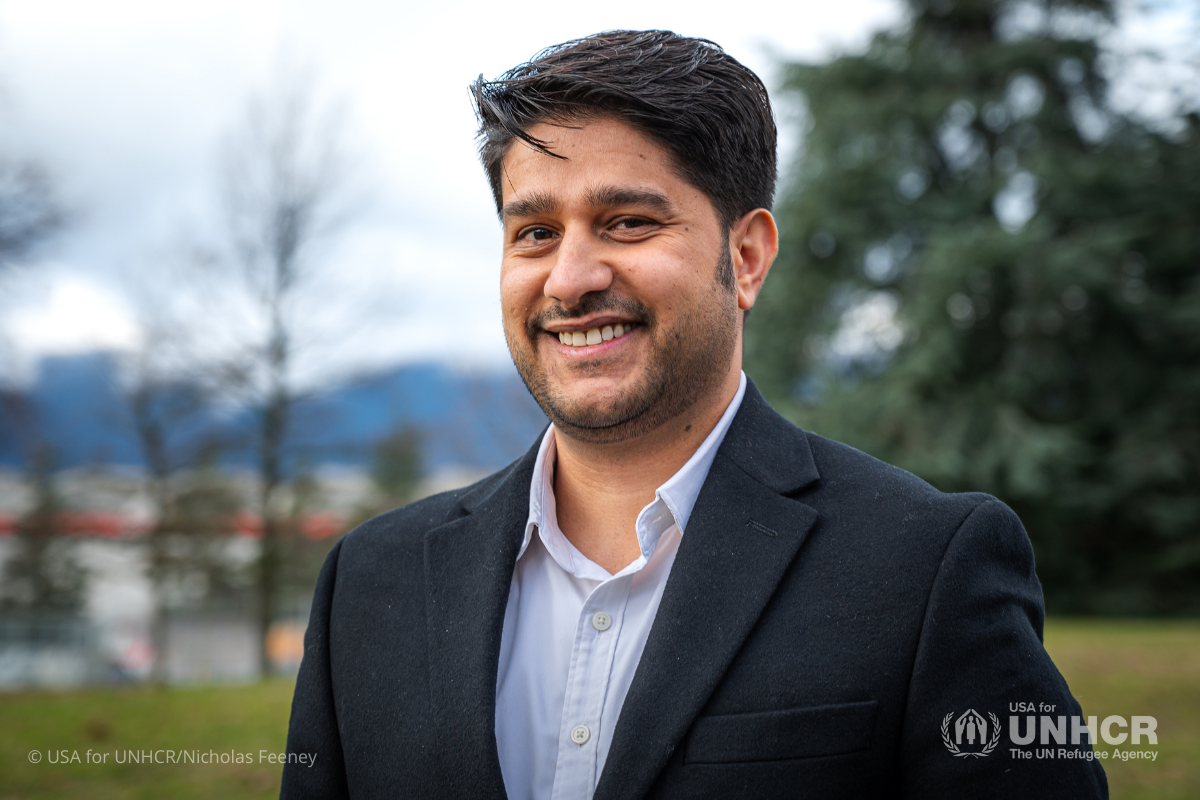Refugee students learn how to use technology — and take hold of their futures

When she was 16, Henriette escaped violence in the Democratic Republic of the Congo. Once she reached safety in the UNHCR-supported Dzaleka refugee camp in Malawi, she wanted nothing more than to study. Today, thanks to generous Americans, she’s developing an app to help women in Dzaleka.
Henriette's inspiration is Remy, a refugee from Burundi, who is the de facto leader of the coding revolution in Dzaleka.
Remy discovered his love of technology when he had the opportunity to take courses in computer programming languages like HTML, Java and Python. “It is inspiring to see something that I create myself. We aren’t able to work outside of the camp. However, if you do programming, you can do it from anywhere in the world,” he explained.
Remy, who fled his country after his parents were killed in ethnic violence, wanted to show his fellow refugees that there is a path to a better life through technology. In 2016, Remy began to teach the basics of how to use a mouse and a keyboard. There weren’t enough computers for everyone, so Remy printed images of keyboards that students used to hone their typing skills. Dzaleka’s frequent power outages meant classes often took place in the dark.
The following year, UNHCR and its partners supplied the camp with smartphones, laptops, tablets and Wi-Fi connectivity. With these tools, Remy’s students learned how to design and code apps that served a dual purpose: participants were gaining invaluable job skills and their creations were improving refugees' lives.
One app teaches new arrivals the basics of English and Chichewa, the national language of Malawi. Another sends text messages about food distributions and other relief items available that day. "I want to use technology to solve local problems," said Remy.
He also wants to encourage refugee women and girls to learn about technology, so Remy recently started a computer club called Girls’ Smart Code, which Henriette immediately joined.
"There were mostly boys in the group, and we were asked if we would be able to keep up with them. We said yes, of course we can," said Henriette. "When I think of the future, I think one day I will be able to have a career based on the knowledge I am getting here," she added.
To learn more about UNHCR's work in technology and education read the Turn The Tide: Refugee Education In Crisis report.
Here's how you can help...
To rebuild their lives, young refugees like Henriette and Remy need access to education — including training in today’s digital technologies. The best way you can help them unlock their potential — and to provide refugees everywhere with shelter, food and other vital assistance — is to become a monthly donor. Please make your first gift today.


